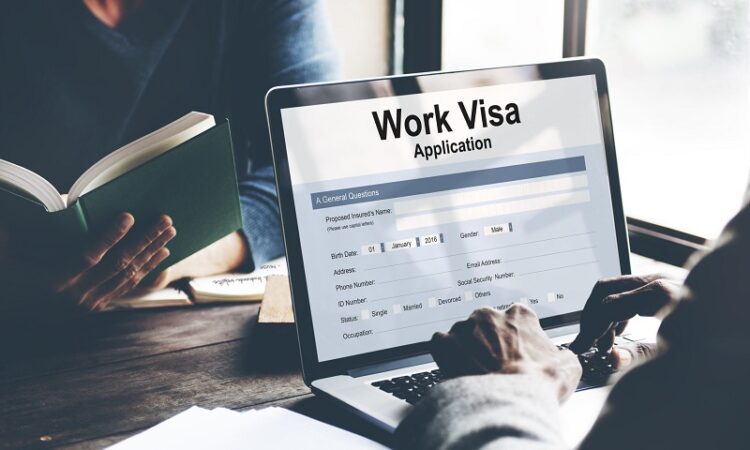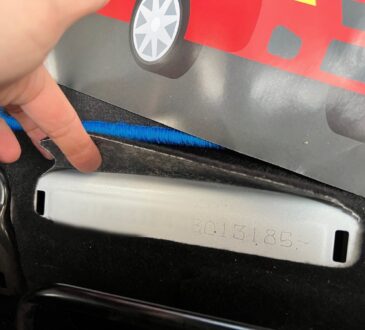
Moving to the United States for work is a dream for many worldwide. With its strong economy and abundance of jobs in various industries, the US offers excellent opportunities for advancement and high salaries.
However, immigrating to the US for employment requires more than just finding a job. You need to obtain the appropriate work visa corresponding to your profession and situation.
This complete guide will provide an overview of the different types of US work visas, the general visa requirements to fulfill, and step-by-step instructions for the visa application process.
Types of Work Visas for the USA
The US issues various categories of temporary, nonimmigrant visas that enable foreign citizens to work legally for a limited period. The main types of work visas are:
H-1B Visa
The H-1B visa is designed for foreign professionals in specialty occupations requiring at least a bachelor’s degree or equivalent qualifications. This visa allows people in IT, engineering, mathematics, architecture, medicine, business, accounting, law, and more to work in the US for up to 6 years.
To qualify for H-1B status, you must have the necessary academic background and work experience for the relevant occupation. An employer must sponsor you and file a Petition for a Nonimmigrant Worker on your behalf.
H-1B1 and E-3 Visa
The H-1B1 and E-3 visas are specifically for professionals from Singapore and Australia, respectively. The requirements are similar to the regular H-1B, but with higher annual quotas.
H-2A Visa
The H-2A is a temporary agricultural worker visa for those seeking seasonal or temporary jobs related to agriculture, such as picking fruits and vegetables. The employer must demonstrate that not enough US workers are available for the role.
H-2B Visa
This visa allows foreign nationals to work in non-agricultural jobs in the US temporarily. Like the H-2A, the employer must prove that hiring foreign workers will not negatively affect similarly employed US workers. Common H-2B occupations include landscapers, housekeepers, cooks, waiters, and resort staff.
L-1 Visa
The L-1 visa enables multinational corporations to transfer qualified executives, managers, or employees with specialized knowledge to their US offices. To qualify, you must have worked for the company abroad for at least one continuous year within the previous three years.
O-1 Visa
This visa is intended for individuals with extraordinary ability in sciences, arts, education, business, or athletics to work in the United States. Applicants must provide evidence of national or international acclaim and achievements.
P-1 Visa
The P-1 visa is for professional athletes competing individually or as part of a team at an internationally recognized level of performance. It also applies to professional entertainers.
TN Visa
Canadian and Mexican citizens can obtain a TN visa to work in the US in various professions under NAFTA. Minimum education and licensing requirements apply.
There are several other less common US work visa categories, including the E-1 for treaty traders and the E-2 for treaty investors.
General US Work Visa Requirements
While each type of temporary work visa has its own eligibility criteria, there are some general requirements that all applicants must meet:
- Valid passport: Your passport must be valid for at least six months beyond your intended stay in the US.
- Sponsoring employer: For most work visas, you need a US employer willing to sponsor and hire you. Their job offer is key to starting the visa application.
- Qualifying profession or background: Your skillset, education, work experience, and nationality (in some cases) must match the visa category under which you are applying.
- Nonimmigrant intent: When applying for a temporary work visa, you must convince the consular officer that you plan to return home after your authorized period of US employment. Ties to your home country help demonstrate nonimmigrant intent.
- Labor certification: For some visas, the employer must get approval from the Department of Labor confirming that hiring you will not disadvantage US workers.
- Approved visa petition: Your prospective employer files a visa petition with USCIS showing that you meet all the requirements in order to work in the particular position.
- Interview and medical exam: These are required steps in the visa application process.
Step-by-Step Guide to Applying for a US Work Visa
Once you determine the suitable work visa category and have an eligible job offer, follow these steps to get your nonimmigrant visa:
- Complete the DS-160 Online Visa Application
- Go to the US Department of State website to complete the online DS-160 nonimmigrant visa application form.
- Submit accurate details, including biographical information, contact information, and details about your purpose of travel to the US.
- Print the DS-160 confirmation page to bring to your interview.
- Schedule the Visa Interview
- Pay the visa application fee and include your DS-160 confirmation number.
- Use the confirmation page of your DS-160 to schedule a visa interview appointment at the nearest US Embassy or Consulate.
- Prepare Documents Required for the Interview
- Valid passport
- Photograph (per visa photo requirements)
- Work visa petition receipt provided by your employer
- University diplomas/transcripts (for jobs requiring higher education)
- Experience letters from previous employers
- License or certificate to practice your profession, if applicable
- Other supporting documents like awards, press articles (for O-1A visas)
- Attend the Visa Interview
- Arrive early at the Embassy/Consulate for your appointment.
- Proceed through security into the waiting room.
- When called, approach the visa window and provide your fingerprints and required documents.
- Answer all questions from the consular officer honestly.
- Get a Medical Examination and Submit Passport
- Schedule and complete a medical exam with an approved doctor.
- Submit your passport containing the approved visa to the courier (if applicable) or pick it up as instructed.
- Travel to the US
- Pay the visa issuance fee (if applicable).
- On the day of travel, carry your approval notice, passport with visa, and letter from your employer detailing your job, salary, and duration of stay.
- Present these documents when going through US immigration to enter the United States.
An experienced San Jose immigration attorney will help determine the right type of visa for your situation.
Rights and Responsibilities as a Temporary Foreign Worker
If you receive a US work visa, you must uphold certain responsibilities throughout your stay. But you also have rights that protect you from exploitation. Here are some key rights and responsibilities of which visa holders should be aware:
Rights
- Fair wages – must be paid the higher of the local or federal minimum wage.
- Limit on fees your employer can charge you
- A safe workplace with reasonable hours and breaks
- Ability to change employers (with some limitations depending on visa type)
- Full benefits of labor laws and ability to sue employers for violations
- Protection if you report abuse – visa status will not be affected.
Responsibilities
- Only work for the employer and position specified on your visa.
- Update USCIS with address changes while in the US.
- Depart the US before the end of your authorized visa validity period.
- Abide by all terms and conditions of your specific visa category.
- Avoid criminal activities that can get your visa revoked.
Work Visa Extensions and Renewals
Most temporary US work visas may be extended or renewed if you continue to meet the eligibility criteria. Some key points:
- Start the renewal process well before visa expiration to allow sufficient processing time.
- Nonimmigrant visas can typically be renewed through the same process as the initial application.
- Some visas, like H-1B, have max cumulative durations that limit the total time you can work in the US.
- Change of employer/sponsorship usually requires applying for a new work visa.
The family immigration lawyer at the Law Office of Lina Baroudi guides clients through work visa renewals while avoiding disruptions to their employment authorization. Rely on their team to handle this process seamlessly on your behalf.





